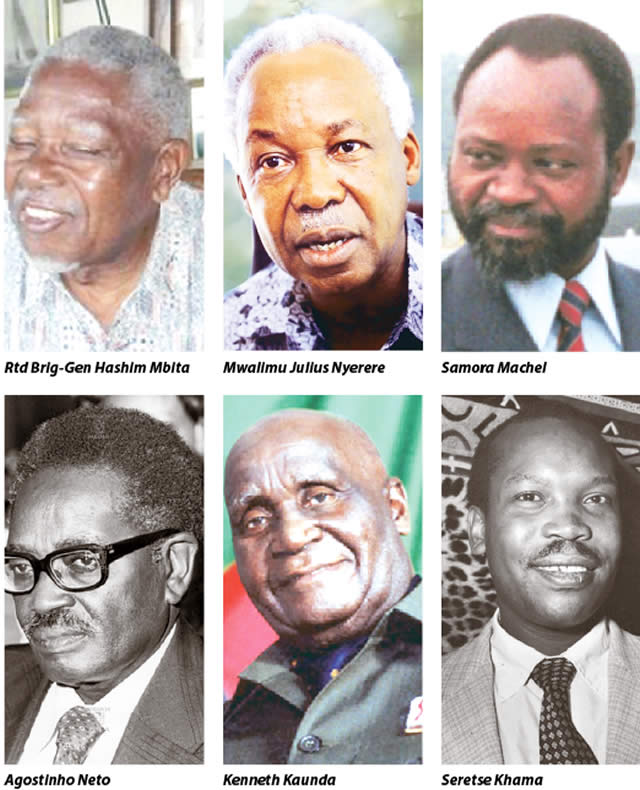Editorial Comment: Kudos to Sadc for Mbita project

 HISTORY was made in Victoria Falls yesterday where Sadc heads of state and government are gathered for their 34th Ordinary Session where President Mugabe assumed chairmanship of the regional bloc, taking over from Malawian President Professor Peter Mutharika. The significance of the chairpersonship did not only lie in the fact that it is Zimbabwe’s first since Sadc was transformed from a co-ordination conference to a regional economic community, but in that Zimbabwe effectively moved from an agenda item to leadership of the regional bloc.
HISTORY was made in Victoria Falls yesterday where Sadc heads of state and government are gathered for their 34th Ordinary Session where President Mugabe assumed chairmanship of the regional bloc, taking over from Malawian President Professor Peter Mutharika. The significance of the chairpersonship did not only lie in the fact that it is Zimbabwe’s first since Sadc was transformed from a co-ordination conference to a regional economic community, but in that Zimbabwe effectively moved from an agenda item to leadership of the regional bloc.
Tied to all this is in the apparent convergence of opinion between Zimbabwe and the region, and the MDC-T’s traditional handlers and benefactors who are on record saying Zimbabwe was not suffering from a crisis of leadership, contrary to claims to that effect by MDC-T leader Mr Morgan Tsvangirai, who still dreams of sitting in the councils of Sadc without the people’s mandate.
EU ambassador to Zimbabwe Mr Aldo Dell’Ariccia told a coterie of NGOs and opposition party activists at a forum in Harare last month that there was no failure of leadership in Zimbabwe, a fact confirmed by Sadc leaders, who chose President Mugabe and Zimbabwe as their chair for the next 12 months.
This was indeed a crowning of the will of the people who overwhelmingly endorsed Zimbabwe’s brand of revolutionary politics in last year’s harmonised elections that delivered a crushing victory to President Mugabe and Zanu-PF.
Zimbabwe was effectively on the agenda of the regional bloc since March 31, 2007, the day Sadc leaders convened an extraordinary Summit in Dar es Salaam, Tanzania, where they tasked the then South African president, Thabo Mbeki, to mediate inter-party political dialogue between Zanu-PF and the MDC formations, dialogue that culminated in the inclusive Government which was constituted to foster an environment of economic and socio-political stability in readiness for elections which were duly held on July 31 last year, delivering a resounding victory for Zanu-PF and a debilitating defeat for the MDC-T.
The Vic Falls indaba was thus a celebration of that victory, and served to affirm the spirit of the Front Line States that led the charge of decolonisation in Southern Africa with the honour extended to former OAU Liberation Committee executive secretary, Brigadier-General (Retired) Hashim Mbita, who joined a distinguished panel of five of Africa’s founding fathers who received the honour before him.
Only Mwalimu Julius Nyerere (Tanzania), Agostinho Neto (Angola), Samora Machel (Mozambique), Seretse Khama (Botswana) and Kenneth Kaunda (Zambia), have also been conferred the lofty recognition.
This gesture, which was preceded by the launch of nine volumes of the Hashim Mbita Project, which document the liberation struggles of nine Southern African countries, could not have found a better site than the majestic Victoria Falls that were misrepresented in history as having been discovered by British missionary David Livingstone, who had in fact been led to them by indigenous people residing in the area.
That historical distortion, no matter how seemingly innocuous, highlights the need to properly capture our history for posterity, and the 34th session of the Summit could not have begun on a better note.










Comments